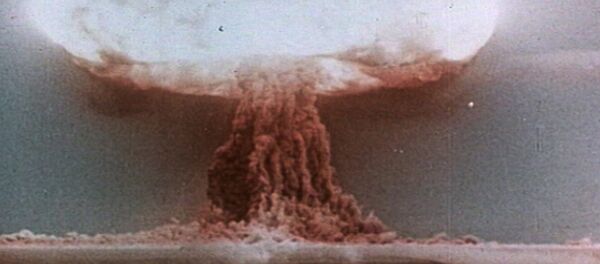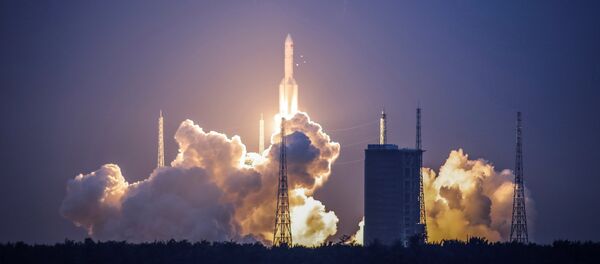Sputnik discussed the feasibility of the UK aim to launch commercial rockets with Professor Steven Freeland, Dean of the School of Law at Western Sydney University.
Sputnik: How feasible is the UK aim to launch commercial rockets for the first time amid the uncertainty of Brexit?
So I'm sure this is a well thought out process, but in the end, there are so many contingencies it's not possible to say that it's guaranteed to succeed, but certainly, they're looking at a market that has great potential.
Sputnik: How competitive will the UK be on rocket launches market in your view; does it have sufficient resources to compete with other countries?
Steven Freeland: Technically the UK is a very sophisticated country when it comes to space technology; working with companies like Lockheed Martin, which of course, have a lot of technological expertise. So in terms of competitiveness, they have to find the right market, they have to find an appropriate launch vehicle that would suit what they want it to do, and they have to build an appropriate facility.
READ MORE: PhD on US Space Force: 'We Don't Need to Repeat Mistakes Made on Earth in Space'
But again, if they do all their work, given the nature of the way the worldwide small satellite industry is developing, I believe they can be very competitive. That said, the technology does change very quickly, the market is still quite fluid and if you get things wrong or if you use technology that quickly becomes obsolete, then your competitiveness can die away very quickly.
So obviously, nothing can be guaranteed, but anything we read and understand, and I've had quite a bit to do with some small satellite launches in other countries, certainly, if you believe what they say about the potential for the book of future launches, then I think it's a highly profitable industry with the right technology.
Sputnik: What about this initiative in the long run, could this further fuel the space race and what new perspectives can it open up?
This technology has gone very much from the experimental to the commercial and technical now, and it will allow a whole range of new entrepreneurial space actors into the market. They can move quickly, they've got great R&D and the barriers to entry for them are significantly lower because the cost is much lower, and in that respect, it's absolutely clear that small satellite technology will allow a whole range of additional types of activities to be accessible to a whole range of broader actors.
READ MORE: Professor Explains if Establishment of US Space Force Really Necessary
They won't replace traditional larger satellites which still are incredibly important to the way every country operates through the access to that technology, but they will allow for a whole range of new activities by new actors.
So yes, in a sense, there is a new space race, a new space technology race, and people talk about the democratization of space because now, in particular, this technology with the lower barriers to entry, allows for a whole new raft of additional activities. So in a sense, we're at the beginning of another phase in the way that we utilize space for peaceful purposes.
Steven Freeland: Space law has a lot to say about military uses of space and will continue to do so, despite, what has been said by some people around the world. I do not regard space as a warfighting domain, and I certainly believe that space war does not sanction the inevitability of war in space.
The views and opinions expressed by the speaker do not necessarily reflect those of Sputnik.






